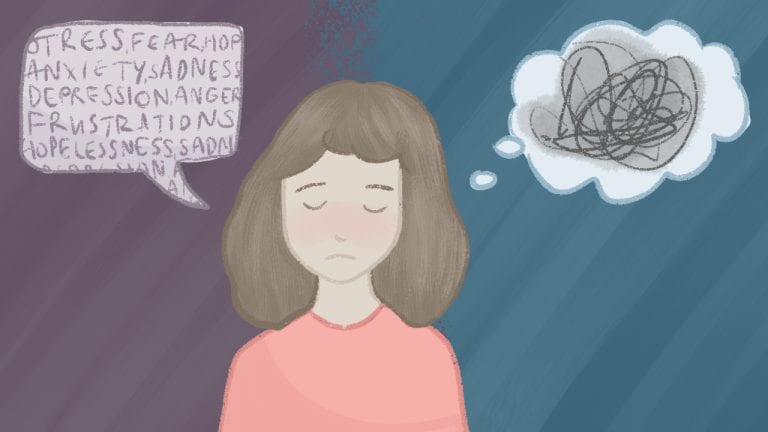
How to Deal with Academic Burnout

Ever questioned why, despite spending the entire night studying, you still find it difficult to comprehend what you learned? Or how your body always appears drained and exhausted when it’s time to go to class or do homework? Or when you work on anything academic, there is a pervasive feeling of tiredness that surrounds you, making you want to give up and accomplish nothing? This regularly occurs among different kinds of students but is especially prevalent in high school and university students. The feeling you have right now may be a case of academic burnout, a condition that has haunted students due to too much workload, poor time management, academic stress, and other factors which result in the student losing interest in academics.
Table of Contents
What is academic burnout?
Academic burnout is a condition that affects students and can cause mental and physical fatigue, a persistent state of exhaustion, trouble maintaining concentration during academic-related activities, and loss of motivation. Study burnout can have a variety of causes, including an excessive workload, mental exhaustion, inadequate nutrition, problems with the present curriculum, or insomnia brought on by activities related to your studies.
What are the symptoms of academic burnout?
Finding out if you have academic burnout at an early stage might considerably reduce its effects. By choosing to ignore symptoms and early indicators of academic burnout, there can be a risk of damaging both their physical and mental health, which could result in even worse difficulties in the future.
Because academic burnout is a psychologically and physically affiliated phenomenon, the symptoms and effects may vary from one individual to the other. However, there are symptoms present much more often than others which could help you determine if you truly have academic burnout. The most common and obvious symptoms include mental and physical fatigue, diminishing enthusiasm for academic activities, sluggish feeling during academic presentations, and difficulty in comprehending lessons or study materials.

How to deal with academic burnout?
Now that we have determined whether or not you have study burnout, we can now proceed to discuss various ways of overcoming this fearful phenomenon. However, please do note that these are only preemptive measures, and if you feel you need a more expert opinion, please consult with a professional.
1. Learn to manage your time
Improper time management is one of study burnout’s roots and is the first issue you should address and give attention to. You may essentially weed out one of the main causes of study burnout by setting up a daily timetable and routine to complete particular activities that have been previously assigned to you, and by closely adhering to your predetermined schedule. You may do whatever you want with your schedules because you are the one who makes them however, make sure to leave enough time for your schoolwork, of course.
Maintaining a regular timetable can help you stay in the routine of studying and completing academic tasks while also reducing your tendency to procrastinate. Theoretically, by being more productive and completing more work, you can prevent having to squeeze all of your assignments into the day before they are due.
2. Procrastinate less
Procrastination is a student’s worst enemy as it ruins your pre-determined schedule, keeps you from being productive, and promotes last-minute cramming which is never healthy. You can start by sticking to the schedule you’ve created for yourself, which limits any chances of procrastination because your schedule is always busy. Even with a busy schedule, you might want to place a limit on the amount of time you spend on your phone’s screen if you still catch yourself doing it instinctively. Most smartphones come with a screen time tracker that you can customize to notify you when you’ve been sitting around and putting off tasks for too long.
3. Reward yourself with “Me Time”
The 50-minute approach is a well-known way to divide your time so that you can get the right amount of relaxation and avoid being fatigued. You can somewhat simulate the sense of taking an exam or quiz by giving yourself a 50-minute time limit to complete activities, which may increase your productivity. You give yourself a 10-minute break after the 50 minutes are up for every hour you spent working on academic tasks so that you can refuel your energy and sharpen your attention. This can increase productivity, and every hour brings a fresh burst of inspiration and ideas to further your research.
Additionally, also take the time to rest from all the activities that are keeping you busy. You can also do other activities non-academic related to keep you entertained. You may encourage your brain to store the information you obtained during study sessions or academic assignments by giving yourself enough relaxation and entertainment. Additionally, it helps your brain to apply what you’ve learned to routine activities or interests, which makes the memory much more accessible and simpler to recall.
4. Take care of your physical health
Your physical well-being can also have an effect on your mental state. Sleeping well and getting enough of it are essential for maintaining a healthy lifestyle and preventing the physical side effects of academic weariness. Sleep, however hotly contested, has been shown to restore the body’s lost energy and refuel the brain’s capacity for attention and function.
Additionally, keeping track of your diet and making sure you are eating properly is a good idea. In order to keep your body and mind functioning properly, you need to eat appropriately and consistently. You can kill two birds with one stone by giving yourself the appropriate amount and diversity of nutrients needed for everyday use. You prevent the mental implications of undereating, which may result in burnout, and you maintain yourself healthy and energized for activities other than studying.

5. Set academic goals
Having a goal inspires you to work harder and attain your objectives. A goal aids in mental stimulation and prevents bad thoughts, such as academic burnout, from entering your head. It would also be wise if the objective you set seemed challenging but was still achievable. Every time you fulfill a goal you have set for yourself this will offer you a powerful sense of happiness and achievement. For instance, if you manage to achieve your goal of getting a perfect score on your upcoming test, this will inspire your brain and encourage you to work toward other objectives you have established.
6. Seek professional help
If, however, after doing all the steps outlined above, you are still unable to recover from academic burnout, it may be time to seek assistance from a licensed psychologist. It would be advisable to seek out professional assistance because academic burnout primarily has an impact on mental health. More significant than any grade you may or may not receive is the state of your mental health. Mental health is a serious issue and should not be taken lightly. Academic burnout may be a subtle symptom of something even bigger and should be handled with utmost care.
Conclusion
There are physical and mental limits to how much effort the human body and brain can endure. Even the best athletes and mathematicians need to take a break from time to time in order to avoid injury and exhaustion. The same can be noted with students and feelings of academic burnout are valid, however, there are some measures you can take to deal with it or prevent it entirely. You know yourself better than anyone and when you feel the signs creeping in, it’s best to deal with it before it becomes a bigger problem.

Carelle
Carelle is a teacher who has been through the ups and downs of the teacher and learner life. She wishes for every learner to gain educational satisfaction that will help embody the people they want to be in the future.




